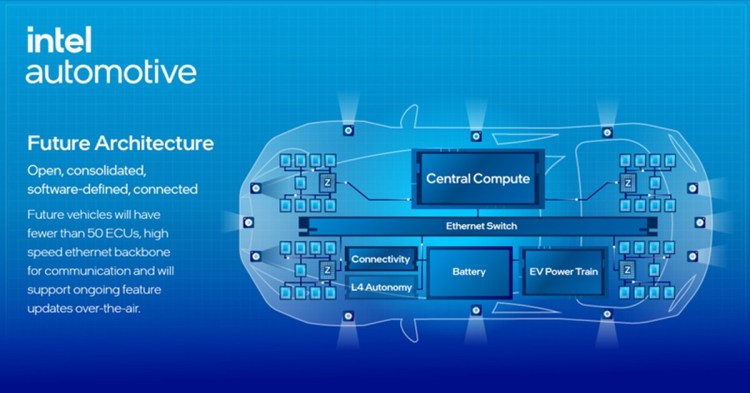Intel has recently acquired Silicon Mobility SAS, a fabless automotive silicon and software company known for its EV energy management SoCs. The acquisition will extend Intel’s presence in the automotive industry by incorporating intelligent and programmable power devices into their portfolio. With industry-leading accelerators and advanced software algorithms, Silicon Mobility’s SoCs contribute to significant gains in vehicle energy efficiency.
Intel’s Commitment to AI in the Automotive Industry
In addition to the acquisition, Intel is making strides in bringing AI computing to software-defined cars. At CES 2024, Intel demonstrated its role in shaping the future of automotive intelligence. The company unveiled its first-generation Software-Defined Vehicle (SDV) system-on-chip (SoC), designed to integrate AI experiences into next-generation cars while providing car developers with customization options for the processing power required.
“Today marks a significant milestone in our mission to embed AI in every facet of our lives,” said Jack Weast, vice president and general manager of Intel Automotive. “Intel’s foray into automotive growth is spearheaded by our commitment to harness our extensive experience and product suite, streamlining the disruption sweeping across the automotive domain.”
The SDV SoCs introduced by Intel revolutionize power, scalability, and AI-driven performance for automakers. Through the integration of AI acceleration capabilities from Intel’s AI PC roadmap, these chips enable new in-vehicle AI use cases. Zeekr, an original equipment manufacturer (OEM), has already partnered with Intel and Nvidia. Zeekr plans to adopt Intel’s SDV SoC in their upcoming models to enhance living room experiences within their vehicles.
Pioneering Open Innovation and Sustainability
Intel’s collaboration with SAE International demonstrates the company’s focus on sustainability and open innovation. Together, they announced the initiation of an industry-shaping standard for Electric Vehicle (EV) platform power management. Intel leveraged its expertise in PC energy management to make the all-electric future more sustainable while aiding OEMs in scaling across their vehicle portfolios.
“No one has done software-defined vehicles right yet,” Weast emphasized. “Sustainability is the focus. Batteries are now the most expensive and heaviest part of the vehicle. It reminds us of the first-generation laptops… We have decades of experience in helping the industry get to a more sustainable future. We hear from automakers over and over that they need a scalable solution.”
Moreover, Intel aims to challenge the closed monolithic solutions prevalent in the industry by pioneering an open automotive chiplet platform. Through a partnership with Imec, a research hub, Intel plans to advance chiplet packaging technologies, ensuring reliability, and enabling the integration of customer chiplets into its automotive product roadmap.
Intel also showcased the transformative potential of its AI PC experience in automobiles. By demonstrating 12 advanced workloads concurrently, the platform highlights how automakers can consolidate their electronic control unit (ECU) architectures to achieve improved efficiency, manageability, and scalability.
While acknowledging its late entry into the connected car market, Intel believes in the advantage of its open and hybrid-custom AI-enabled automotive chiplet platform in terms of efficiency, sustainability, and building a dynamic global supply chain.
According to Weast, car makers now have shorter development cycles, enabling them to redesign and switch vendors more easily. Intel plans to commercially ship its first-generation AI software-defined vehicle system by the end of 2024, with Zeekr as the first customer.










